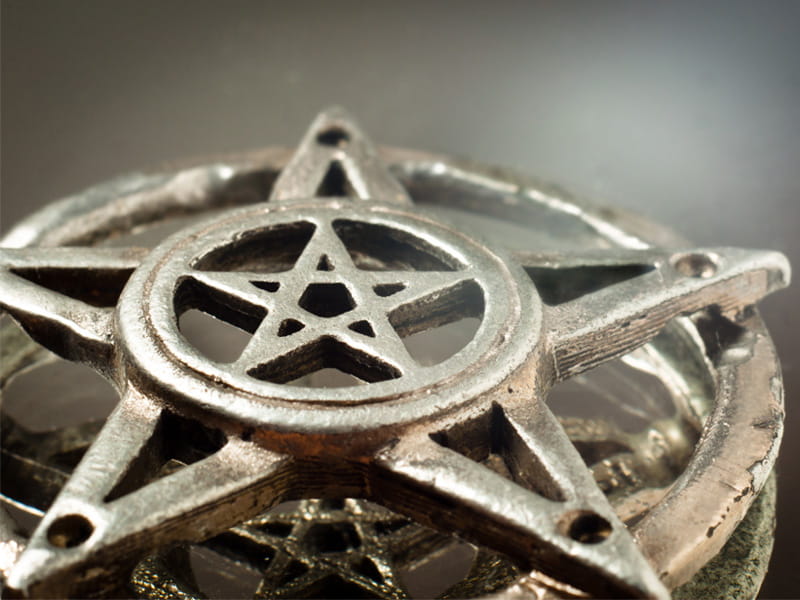People of faith fall on a continuum: some draw solace and inspiration from a specific spiritual tradition, and yet remain fully committed to tolerance and diversity, while others would burn the earth to cinders if it would put an end to heresy. There are, in other words, religious moderates and religious extremists, and their various passions and projects should not be confused. However, religious moderates are themselves the bearers of a terrible dogma: they imagine that the path to peace will be paved once each of us has learned to respect the unjustified beliefs of others. I hope to show that the very ideal of religious tolerance-born of the notion that every human being should be free to believe whatever he wants about God-is one of the principal forces driving us toward the abyss.
We have been slow to recognize the degree to which religious faith perpetuates man's inhumanity to man. This is not surprising, since many of us still believe that faith is an essential component of human life. Two myths now keep faith beyond the fray of rational criticism, and they seem to foster religious extremism and religious moderation equally: (i) most of us believe that there are good things that people get from religious faith (e.g., strong communities, ethical behavior, spiritual experience) that cannot be had elsewhere; (2) many of us also believe that the terrible things that are sometimes done in the name of religion are the products not of faith per se but of our baser natures-forces like greed, hatred, and fear-for which religious beliefs are themselves the best (or even the only) remedy. Taken together, these myths seem to have granted us perfect immunity to outbreaks of reasonableness in our public discourse.
Many religious moderates have taken the apparent high road of pluralism, asserting the equal validity of all faiths, but in doing so they neglect to notice the irredeemably sectarian truth claims of each. As long as a Christian believes that only his baptized brethren will be saved on the Day of judgment, he cannot possibly "respect" the beliefs of others, for he knows that the flames of hell have been stoked by these very ideas and await their adherents even now. Muslims and Jews generally take the same arrogant view of their own enterprises and have spent millennia passionately reiterating the errors of other faiths. It should go without saying that these rival belief systems are all equally uncontaminated by evidence.
...
Unless the core dogmas of faith are called into question-i.e., that we know there is a God, and that we know what he wants from us-religious moderation will do nothing to lead us out of the wilderness.
The benignity of most religious moderates does not suggest that religious faith is anything more sublime than a desperate marriage of hope and ignorance, nor does it guarantee that there is not a terrible price to be paid for limiting the scope of reason in our dealings with other human beings. Religious moderation, insofar as it represents an attempt to hold on to what is still serviceable in orthodox religion, closes the door to more sophisticated approaches to spirituality, ethics, and the building of strong communities.
Religious moderates seem to believe that what we need is not radical insight and innovation in these areas but a mere dilution of Iron Age philosophy. Rather than bring the full force of our creativity and rationality to bear on the problems of ethics, social cohesion, and even spiritual experience, moderates merely ask that we relax our standards of adherence to ancient superstitions and taboos, while otherwise maintaining a belief system that was passed down to us from men and women whose lives were simply ravaged by their basic ignorance about the world. In what other sphere of life is such subservience to tradition acceptable? Medicine? Engineering? Not even politics suffers the anachronism that still dominates our thinking about ethical values and spiritual experience.
With each passing year, do our religious beliefs conserve more and more of the data of human experience? If religion addresses a genuine sphere of understanding and human necessity, then it should be susceptible to progress; its doctrines should become more useful, rather than less. Progress in religion, as in other fields, would have to be a matter of present inquiry, not the mere reiteration of past doctrine. Whatever is true now should be discoverable now, and describable in terms that are not an outright affront to the rest of what we know about the world. By this measure, the entire project of religion seems perfectly backward. It cannot survive the changes that have come over us-culturally, technologically, and even ethically. Otherwise, there are few reasons to believe that we will survive it.
Moderates do not want to kill anyone in the name of God, but they want us to keep using the word "God" as though we knew what we were talking about. And they do not want anything too critical said about people who really believe in the God of their fathers, because tolerance, perhaps above all else, is sacred. To speak plainly and truthfully about the state of our world-to say, for instance, that the Bible and the Koran both contain mountains of life-destroying gibberish-is antithetical to tolerance as moderates currently conceive it. But we can no longer afford the luxury of such political correctness. We must finally recognize the price we are paying to maintain the iconography of our ignorance.

